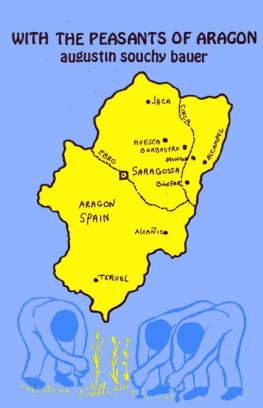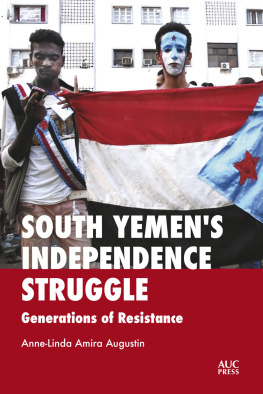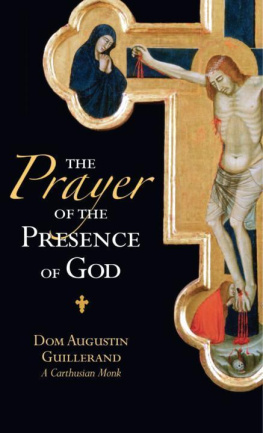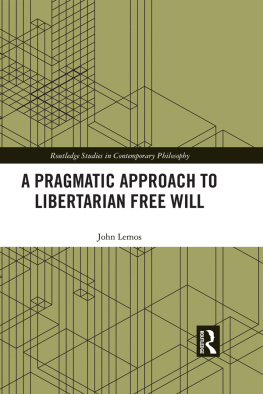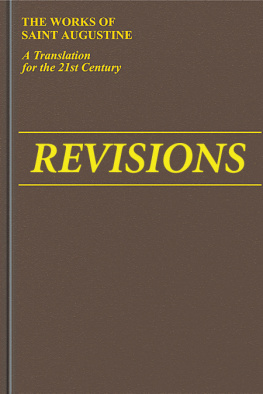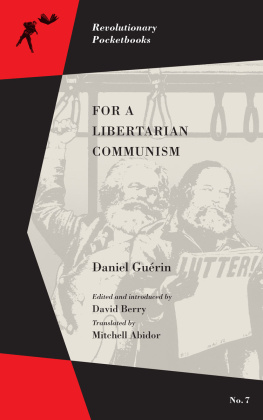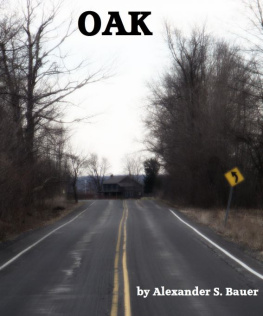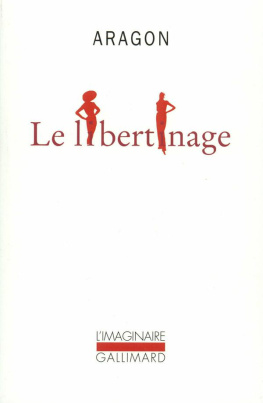Augustin Souchy Bauer - With the Peasants of Aragon. Libertarian Communism in the Liberated Areas
Here you can read online Augustin Souchy Bauer - With the Peasants of Aragon. Libertarian Communism in the Liberated Areas full text of the book (entire story) in english for free. Download pdf and epub, get meaning, cover and reviews about this ebook. year: 0, genre: Politics. Description of the work, (preface) as well as reviews are available. Best literature library LitArk.com created for fans of good reading and offers a wide selection of genres:
Romance novel
Science fiction
Adventure
Detective
Science
History
Home and family
Prose
Art
Politics
Computer
Non-fiction
Religion
Business
Children
Humor
Choose a favorite category and find really read worthwhile books. Enjoy immersion in the world of imagination, feel the emotions of the characters or learn something new for yourself, make an fascinating discovery.
- Book:With the Peasants of Aragon. Libertarian Communism in the Liberated Areas
- Author:
- Genre:
- Year:0
- Rating:3 / 5
- Favourites:Add to favourites
- Your mark:
- 60
- 1
- 2
- 3
- 4
- 5
With the Peasants of Aragon. Libertarian Communism in the Liberated Areas: summary, description and annotation
We offer to read an annotation, description, summary or preface (depends on what the author of the book "With the Peasants of Aragon. Libertarian Communism in the Liberated Areas" wrote himself). If you haven't found the necessary information about the book — write in the comments, we will try to find it.
With the Peasants of Aragon. Libertarian Communism in the Liberated Areas — read online for free the complete book (whole text) full work
Below is the text of the book, divided by pages. System saving the place of the last page read, allows you to conveniently read the book "With the Peasants of Aragon. Libertarian Communism in the Liberated Areas" online for free, without having to search again every time where you left off. Put a bookmark, and you can go to the page where you finished reading at any time.
Font size:
Interval:
Bookmark:
WITH THE PEASANTS OF ARAGN
LIBERTARIAN COMMUNISM IN THE LIBERATED AREAS
Augustin Souchy Bauer
WITH THE PEASANTS OF ARAGN
LIBERTARIAN COMMUNISM IN THE LIBERATED AREAS
by Augustin Souchy Bauer
Entre los Campesinos de Aragn: el Comunismo Libertario en las Comarcas Liberadas
First published 1937, Barcelona by Tierra y Libertad
Translated by Abe Bluestein
First English edition published 1982
In Europe by Cienfuegos Press
In the USA by Soil of Liberty
Cover design by Selma Bluestein
This eBook (Kindle) edition published 2013
by
ChristieBooks
PO Box 35, Hastings, East Sussex, TN341ZS
ISBN 978-0-904564-21-1
http://www.christiebooks.com/ChristieBooksWP/
Contents
Introduction ......
I first met Augustin Souchy in the Casa CNT-FAI (Headquarters of the National Confederation of Labour [CNT] and the Iberian Anarchist Federation [FAI]), Barcelona, April 30, 1937. He was the head of Information in Foreign Languages for the CNT-FAI. He greeted me like an old friend and told me I was to start working as the English Language correspondent for the CNT-FAI the following Monday, May 3rd.
We had never met before, yet I felt I knew him from his reputation. He was waiting for me to arrive to fill a vacancy on the basis of a letter of introduction from Mark Mratchny, editor of the Freie Arbeiter Stimme, Free Voice of Labour, the Yiddish Anarchist weekly in New York City.
When I was there about two months, Souchy arranged a trip through Aragn for my wife, Selma and me. It would cover some of the ground that he travelled and about which he was writing a book. Although I remained in Spain until January 1938, I did not see Souchy's book at that time.
We saw part of Aragn, the towns and villages that Souchy reports about in his book, With The Peasants of Aragn. We did not see the FAI concentration camp for fascist prisoners and captured prisoners of war that Souchy describes, where the guards sleep, eat and work with the prisoners and are indistinguishable from the prisoners. But we did see a group of 40 or 50 prisoners of war in a village on a mountain top about 50 yards behind the front line trenches. They were working on the road and there was not a single guard anywhere in sight.
I asked who was guarding the prisoners and the guide answered with a shrug of his shoulders: No one. He explained that the prisoners were draftees in Franco's army, from poor homes. They were living better than ever before in their lives, and living safe from the dangers of war. They shared the homes of the villagers, ate with the villagers, and were doing the same kind of work as the people of the village.
No prisoner had ever tried to escape. None had ever tried to seize a gun.
I knew that I was seeing something new in the history of warfare on a small scale. I did not dream that comrade Souchy had seen and written about a large camp for fascists and war prisoners, also run on similar libertarian principles.
Selma and I saw about 2 dozen towns and villages on that trip. We saw the collectives, the consumers' cooperatives set up in former churches, stores and shops owned by individual shopkeepers. We observed that we did not see a single policeman or armed guard in any of the communities, including those right on the front lines.
At that time, we did not know that there were no police or armed security forces in a large area embracing several hundred towns and villages with a population of half a million people living on the front lines and in the war zones of a most bitterly fought struggle.
Souchys report of his trip through Aragn is a product of first hand observation and lifelong dedication to the deepest principles of libertarian communism. He was part of the mainstream during the Civil War when 8,000,000 people out of 12,000,000 in the loyalist half of Spain worked and/or lived in industrial or agricultural collectives.
Although he is well known in Europe, he is not so well known in the English-speaking world. Augustin Souchy Bauer was born August 28, 1892 (died, Munich 1894). In 1917, he escaped from Germany to avoid the draft. He then was expelled from Sweden to Norway and from Norway to Denmark because of his participation in anti-war activities.
In 1918, he started writing articles and books for the anarchist and anarcho-syndicalist movement, and continues to lecture and write actively to this day, at 89 years of age.
He has had a knack to be at the centre of historic developments during his life that few, if any, could equal. He was in Russia in 1920 for eight months in connection with the first International Congress of Red Trade Unions.
He lived in Germany from 1921 to 1933 when Hitler came to power. He served as editor of Der Syndicalist, organ of the German anarcho syndicalist labour organization. He was a founder of the International Working Men's Association, IWMA, the anarcho-syndicalist international, and was co-secretary of the International with Rudolf Rocker and Alexander Shapiro.
After 1931 when it became a Republic, he went to Spain many times as a representative of the IWMA. He was in Spain in 1936, two weeks before the outbreak of the Spanish Civil War and Social Revolution. He was immediately put in charge of information in foreign countries and was an adviser on foreign relations.
In 1939, fleeing ahead of Franco's troops, Souchy left Barcelona with half-a-million Spanish anti-fascists. Since then, Souchy has spent a great deal of time in Mexico. He visited Israel and wrote about their collective settlements. He travelled through most of South America, and has spent time in Africa teaching trade union organisation to the native populations. He has lectured and written in Sweden, Germany, the United States, and in many other countries. His books and articles have been published in German, French, English, Swedish, Danish, Spanish and Yiddish.
At age 89, he still conducts active campaigns in behalf of anarchism and anarcho-syndicalism with lectures and writing in Germany as well as recent visits to Sweden and Israel.
--------------
The social and economic story of Aragn was the finest chapter of that period. A majority of the 500,000 people in that rural area put their personal property into the collectives voluntarily and committed their families to the free and equal life of libertarian communism. But individualists lived among them and enjoyed the respect of their neighbours.
The voluntary character of the social transformation from private ownership to collective communities is described at length in the first person account of what happened in the town of Alcampel. (See Appendix.) About half of the town goes collective. Among those who do not join are three teamsters who drive their own trucks, the only trucks in the town. The Collective cannot function without some means of transportation. Does the Collective requisition the trucks? No. They understand and respect the fear of the teamsters; they could lose their livelihood if they gave up their trucks. So, the Collective leaves the only three trucks in town in private hands and sends a delegation to Barcelona to obtain a truck.
How did it happen that the spirit of liberty had such strong roots in Spain, that 8,000,000 of 12,000,000 people lived or worked in voluntary collectives in Loyalist Spain, without benefit of government decrees requiring compliance with regulations from above?
The libertarian labour movement was born in Spain in October 1868, following a visit by Giuseppe Fanelli, an Italian comrade and supporter of Michael Bakunin in the fight within the First International Workingmens Association between the authoritarian Karl Marx and the anarchist Bakunin.
Font size:
Interval:
Bookmark:
Similar books «With the Peasants of Aragon. Libertarian Communism in the Liberated Areas»
Look at similar books to With the Peasants of Aragon. Libertarian Communism in the Liberated Areas. We have selected literature similar in name and meaning in the hope of providing readers with more options to find new, interesting, not yet read works.
Discussion, reviews of the book With the Peasants of Aragon. Libertarian Communism in the Liberated Areas and just readers' own opinions. Leave your comments, write what you think about the work, its meaning or the main characters. Specify what exactly you liked and what you didn't like, and why you think so.

